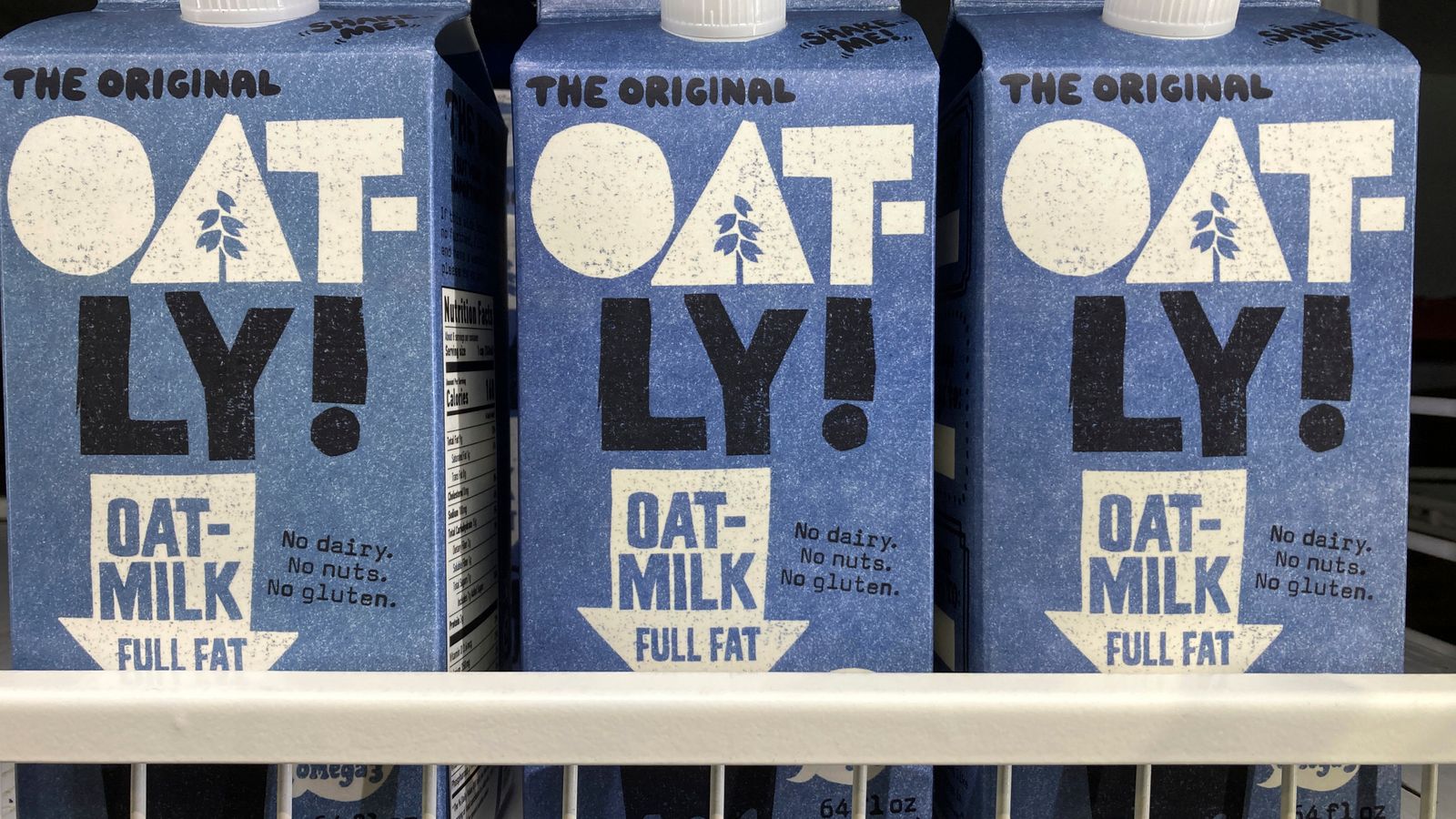Shares in oat milk maker Oatly have turned sour as it counted the cost of production and supply chain problems as well as slower than expected growth in some markets.
The company, backed by celebrity investors such as Oprah Winfrey, blamed “near-term factors” as it slashed its sales outlook for the year to $635m, $55m lower than it had previously forecast.
Problems included a “quality issue” at one of its factories that is likely to result in products being poured away as well as a $1m hit caused by a shortage of HGV drivers in the UK.
Oatly also said that in the Europe, Middle East and Africa (EMEA) region “the pace at which we expected to increase revenue in new and existing retailers and to open new markets is slower than we anticipated as we navigate a dynamic COVID operating environment”.
“We believe this is primarily a timing issue and in the first half of 2022, we expect to have an increased share of shelf space at retail given our strong velocities and current supply levels,” the company said.
The Swedish firm had enjoyed a bumper stock market debut when it floated in New York earlier this year and share rose 30%.
But they have since been on the slide and tumbled by more than 20% following Monday’s third quarter update, leaving them at just over $9 each, compared to $17 at the time of the flotation – when the company was valued at $10bn.
Bank of England chief: I’m uneasy about inflation but we are a long way from the 1970s
Dutch government only has itself to blame for Shell move to UK
COVID-19: Serco making more money from pandemic contracts than previously expected
The update comes after weaker than expected figures from Beyond Meat last week saw shares in that company tumble and prompted concerns that demand for its plant-based foods may be slowing.
Oatly reported lower than expected sales of $171m for the third quarter – and faced what chief executive Toni Petersson described as “temporary headwinds”.
Those included a $3m setback due to technical problems at its factory in Utah, pandemic-related restaurant closures in Asia also costing $3m, and a $1m hit from lorry driver shortages in Britain that temporarily delayed distribution.
Higher logistics and shipping costs also took their toll as did a $22m increase in “employee-related expenses”, partly accounted for by more long-term bonus schemes being set up after the company went public.
Bottom-line losses for the quarter widened to $41m compared to $10m a year earlier.
The company also said it was “currently investigating a quality issue it identified at one of its production facilities that will probably result in the destruction of inventory and corresponding lost sales in the EMEA region”.
Mr Petersson said that despite the problems it had faced, Oatly was “continuing to drive conversion from dairy to the plant-based milk category”.
He added: “As we scale our global operations, we may experience certain variability in our strong growth rates quarter-to-quarter, yet our confidence in the category opportunity and long-term trends and trajectory of our business has never been stronger.”






















